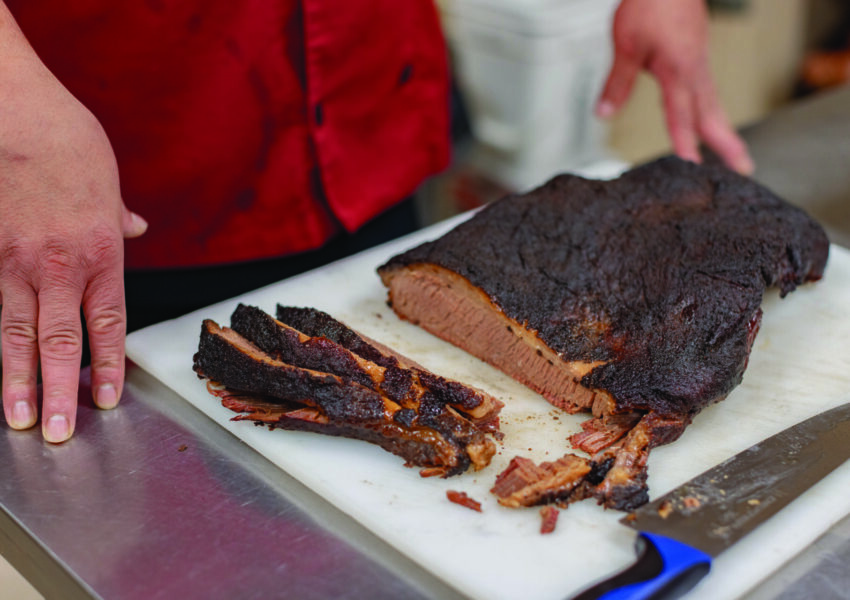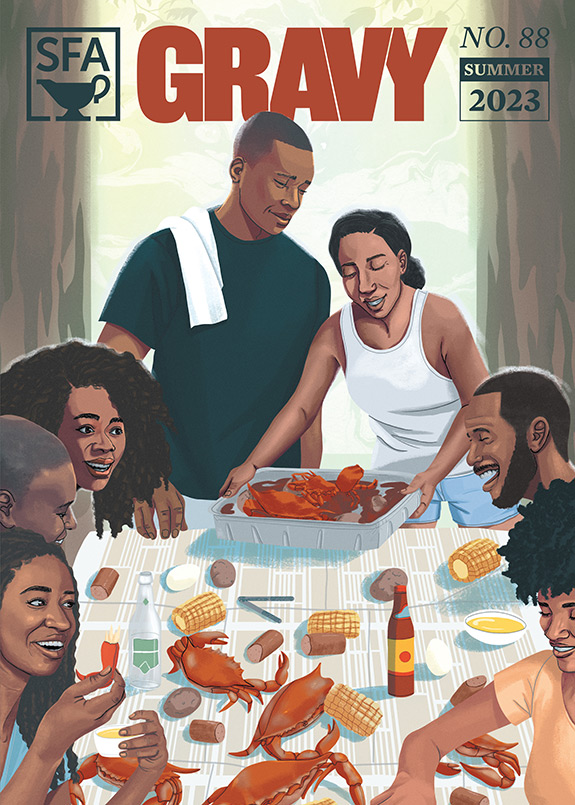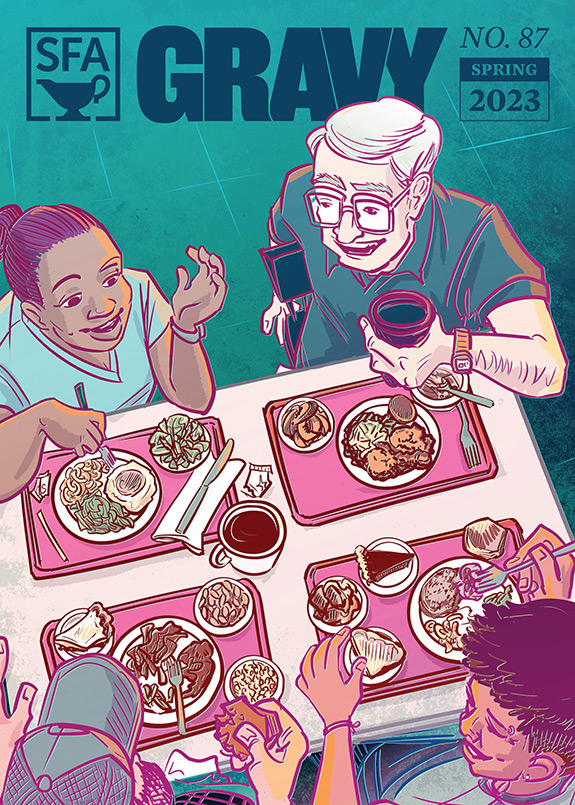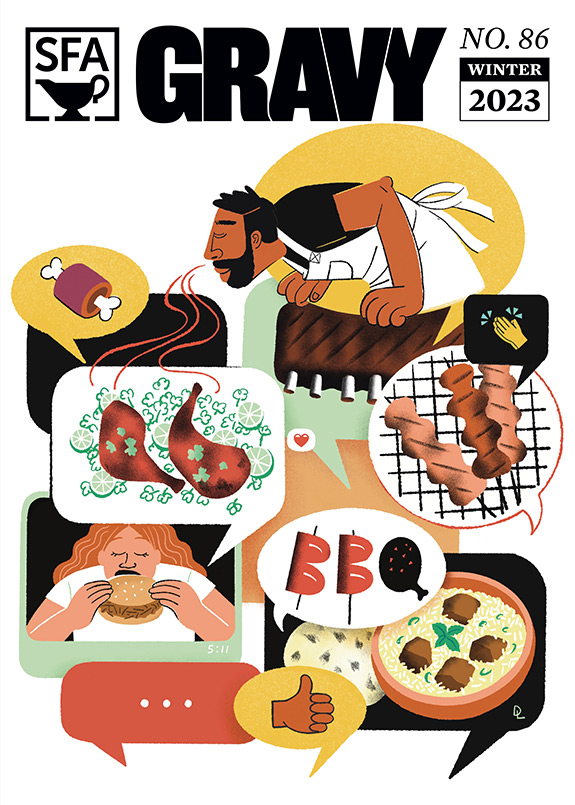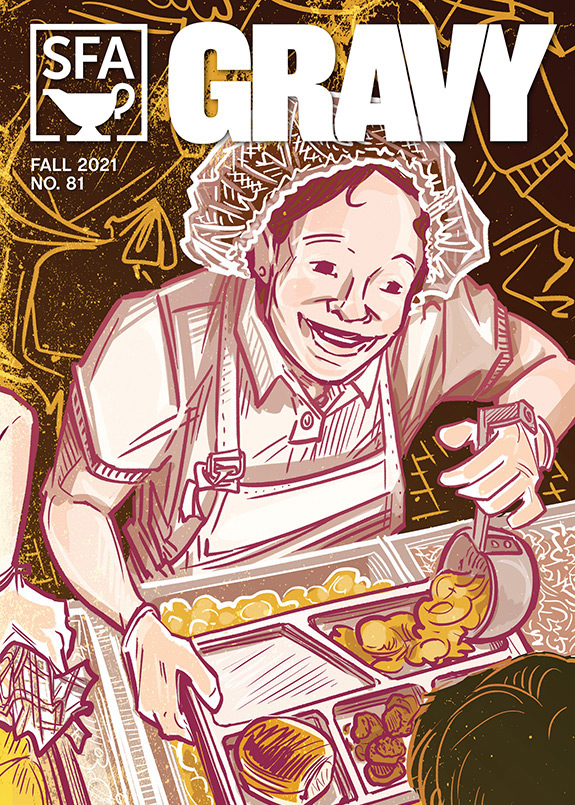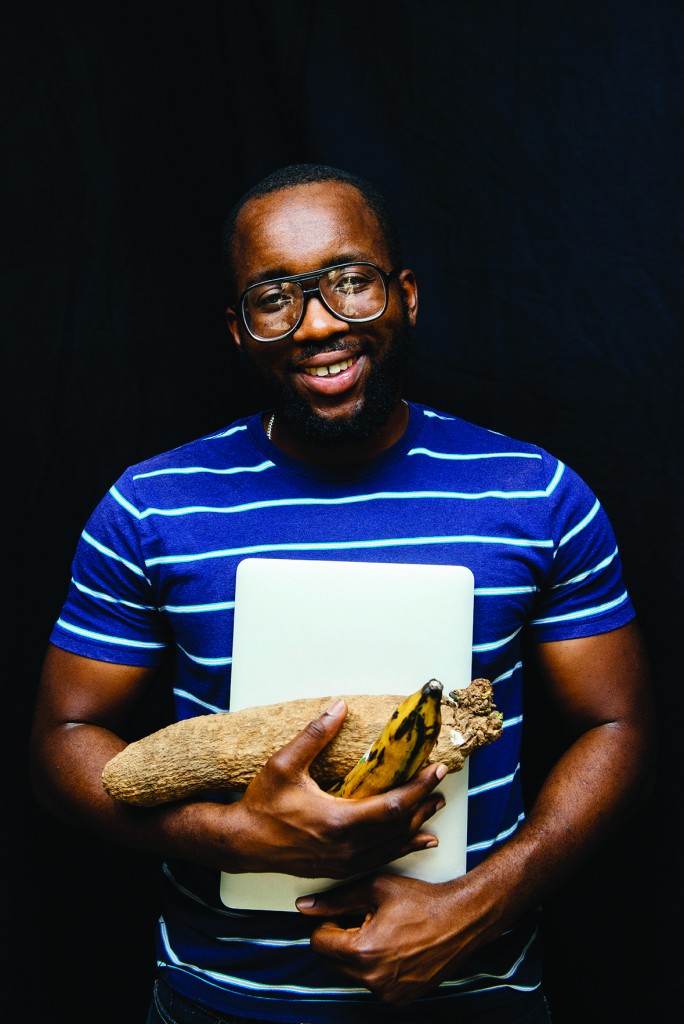
This story first appeared in the winter issue of our Gravy quarterly. The author, Courtney Balestier, a native of West Virginia, lives in Detroit, Michigan. Her writing has appeared in Lucky Peach, Punch, and Gastronomica. Photographs are by Rush Jagoe.
Lagos or Bust
From Nigeria to New Orleans
by Courtney Balestier
Much has happened in the two years since thirty-two-year-old Tunde Wey began developing Lagos, the Nigerian restaurant concept named after his hometown. He’s grown it from a series of informal barbecues to a sell-out, multi-city tour of pop-up dinners. He’s been detained by Border Patrol; has gotten married; and has relocated from Detroit to New Orleans, where he opened a Lagos stall in the St. Roch Market. Then, in August, Wey shuttered that to focus on a brick-and-mortar New Orleans restaurant.
Wey started tinkering with Lagos after opening (revolver), a Detroit restaurant that features a rotating lineup of chefs. He was not one of them. He wanted to pursue his own ideas by himself. Wey had never intended to cook Nigerian food but soon found himself committed to his home country’s cuisine, interested in its ability to translate a message that food doesn’t have to be pretentious. Sharing this message became his mission. At his pop-ups, he served dishes like peppered goat, jollof rice in tomato-pepper broth, and egusi, melon-seed soup with the intense flavor of fermented locust beans.
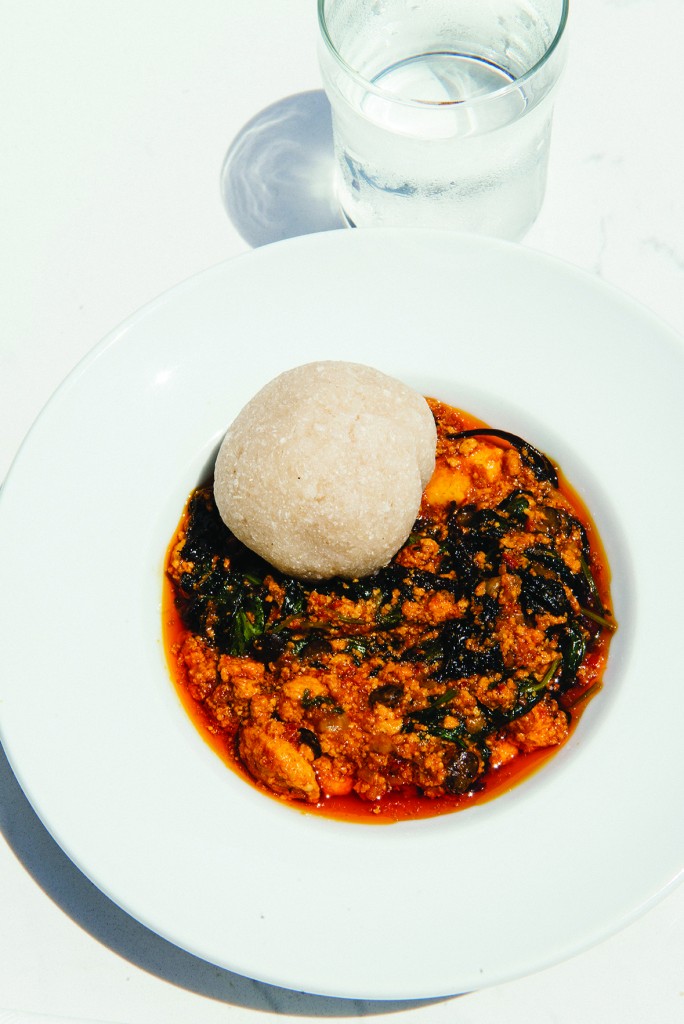
Wey is always thinking and questioning. It hasn’t escaped him that Nigerian food actually might have a plan for him. “These are experiences that have been percolating and waiting to manifest,” he says. “Nothing just happens. These are things that I’ve always believed in, and everything you believe in finds expression in how you live.”
Wey didn’t grow up cooking; he is learning on the job. He wants to serve “magnificent” Nigerian food that tastes as good as his mother’s, and this may take him twenty years, “maybe never.” In a sense, that benchmark might be beside the point. He is using Nigerian food to talk about how we value things, and how some cuisines—and the cultures they nourish—are marginalized while others are not.
At his Lagos stall at St. Roch Market, Wey would watch people stumble upon his menu and be confused by what they received, sometimes due to translation issues. He even sold a chicken sandwich for a few weeks, “my begrudging admittance that maybe Americans loved sandwiches more than Nigerian food.” One patron opted out of egusi in a manner that’s hard to imagine in more normalized “ethnic” restaurants: “He was like, ‘It tastes weird; I can’t do this. I’m sorry,’” Wey remembers.
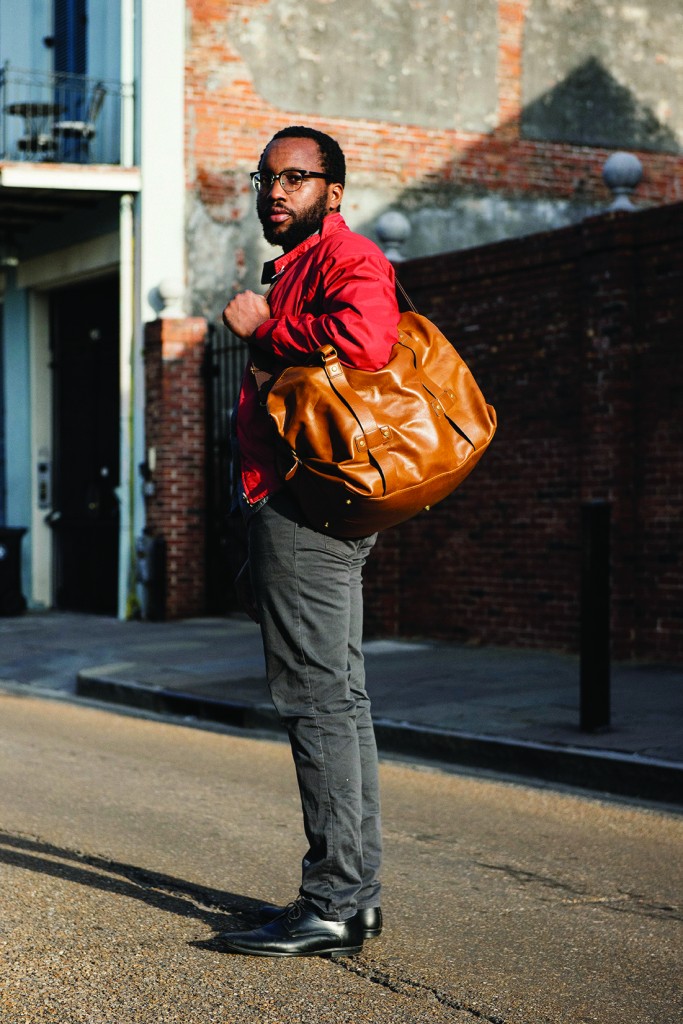
Wey came to the United States on a visiting visa, then changed his status to become a student. Eventually the permissions expired. This January, Wey was on a coach bus to Los Angeles on a pop-up tour that included Chicago, New York, and New Orleans, where his now-wife, Claire, was living. This dinner was to be held at Roy Choi’s POT. Wey had cold-emailed POT, not quite realizing Choi’s renown, because he felt its vibe was simpatico. In Las Cruces, New Mexico, Border Patrol agents pulled the bus over. Wey, undocumented, spent weeks in an El Paso, Texas, detention center.
“I’ve been living undocumented for like eight years,” he says. “It wasn’t a preoccupation, but it was very present. I faced the frustrations and limitations of being undocumented every day.” He plans to apply for a status adjustment.
Wey likes New Orleans, which reminds him of Detroit: “I feel like the same kind of white cool kids who live in Detroit also live in New Orleans. This is to stereotype, of course—but the conscious, black, educated folks who live in Detroit and are advocating for Detroit’s equitable distribution of resources also live in New Orleans. And then, the same sort of underprivileged class of mostly black people, a predominantly black city, also live in New Orleans. And the history, the culture. The fear and the presence of random violence also exists. I feel like New Orleans is Detroit with better weather and nicer buildings. Great buildings.”
To the extent that what I’ve eaten is Southern food,
it’s very much West African.”
He also recognizes the similarities that West African foods like bean fritters and jollof rice share with Southern dishes like Hoppin’ John and jambalaya: “To the extent that what I’ve eaten is Southern food, it’s very much West African,” he says. Not that he’s going out to dinner much. Mostly, he works on Lagos and plays soccer. He’s currently scouting locations in New Orleans, where he will open Lagos both again and for the first time.
With a dedicated brick-and-mortar location also comes the suggestion of permanence—significant for a guy who admits that he always starts with high expectations, then gets bored and moves on quickly. A mentor counseled him once on the idea of breadth versus depth, suggesting that he pursue a single project for a month or two, then a year or two. At the time, Wey resented the idea that he had to specialize.
He thinks about that prompt to stick to one thing and realizes that Lagos, through all its evolutions, is that thing. “The blips that happen are just the cadence of living, but I have been doing Lagos for a year. And I’ve been doing me for longer than that, and Lagos is an extension of me.”
Want to receive Gravy in print? Join or renew your SFA membership here.



